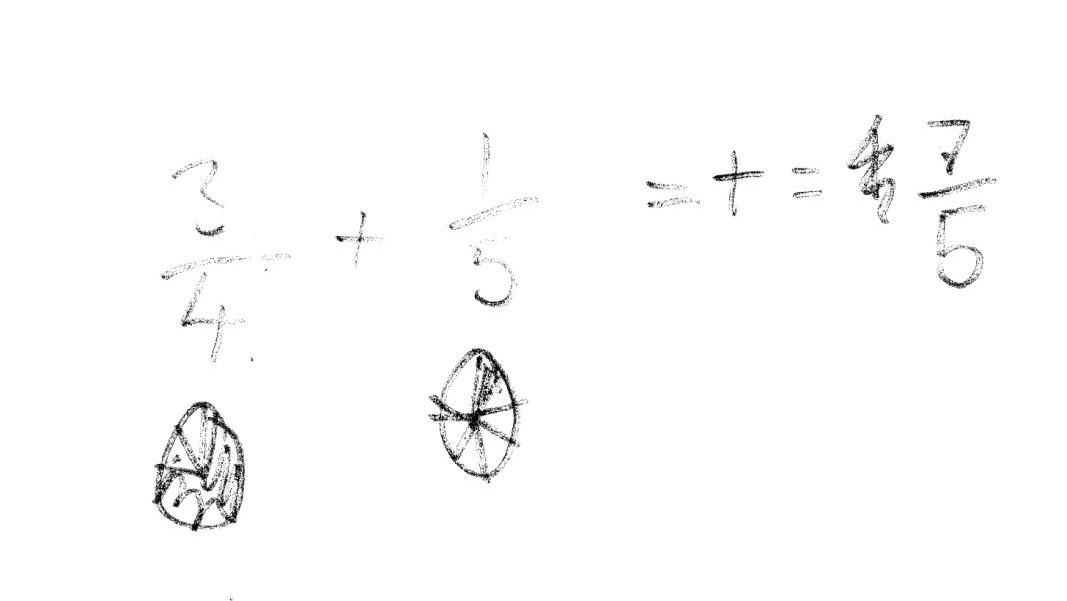7/6/13
The Institute of Education (IOE) worked with a small group of 10 to 11 year old students towards the end of the academic year to undertake three main tasks. The students that participated in the research were highly motivated high achievers.
Discovering students’ fraction representations
The aim of this trial was to observe the range of mental representations the students possessed as they thought about the fraction x/y, in order to build up our database of the ways that children model fractions. It was found that these students (who were higher-attaining students typically drew upon a wide range of representations.
The student that demonstrated the widest range of fractions considered area, sets of objects and symbols. This student was able to use all of his representations to demonstrate his conceptual understanding of adding fractions. Another student was more comfortable with area and symbols only. She was able to use the symbols to add fractions with unlike denominators following a procedure, but was unable to use area to demonstrate addition.
Exploration of existing state-of-the-art fractions software
The students were presented with two existing types of state-of-the-art fractions software: Gizmo and Logotron Visual Fractions. The students discussed what they liked, which features were helpful in supporting their understanding of fractions and what they thought could be improved. Students showed preference for:
- being able to see more than one representation at a time
- being able to manipulate the representations themselves
- receiving immediate feedback from the computer
- being able to partition (split up) the number line to show equivalence
- having the computer tell them if their solution was correct
Discussion of the new exploratory learning environment
Finally, the students were encouraged to discuss what they thought the new exploratory learning environment (ELE) could look like and how it might work. They came up with lots of ideas and were unanimous in preferring a ‘Fractions Lab’ where they could ‘experiment with lots of fractions and ways of representing fractions’ and become ‘fractions experts’.
For more information about IOE’s trials for the iTalk2Learn project, contact us today!



